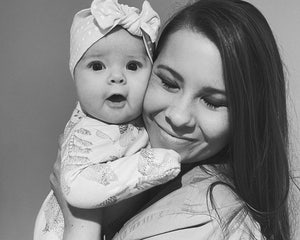“My mom was like, ‘You’re crying 12 times a day hysterically, to the point where your teeth are chattering,'” the actress said. “‘That’s not normal.'”
Annie Murphy is opening up about her mental health struggles.
In a new interview with The Zoe Report, the actress detailed her battle with depression, including how she first became diagnosed last year.
Why Bindi Irwin Is Taking a Break From Social Media
Murphy, 34, began by recalling how she struggled during the “Schitt’s Creek” farewell tour back in January 2020. At the time, Murphy — who played Alexis Rose on the series — said her co-star Noah Reid helped her put a “brave face” on for the fans. However, she’d later go home and cry.
A few months later, in March, the Emmy winner was scheduled to start shooting the comedy, “Kevin Can F**k Himself,” following a trip home to see her parents in Canada. But after she arrived, coronavirus lockdown began.
“My mom was like, ‘You’re crying 12 times a day hysterically, to the point where your teeth are chattering,'” Murphy said. “‘That’s not normal.'”
She then met with a therapist, who diagnosed her with depression. “I was like, ‘Damn it, I’m depressed,'” she recalled. “Ugh.”
“A lot of people are going to think that I sound like I’m playing a tiny violin for myself,” Murphy explained. “Oh, you’re rich and famous. Why the f— are you sad? You have nothing to be sad about.’ But I’m not going to post photos of me covered in my own snot, lying on the floor, unable to get up. I don’t want people to have to see that.”
T-Pain Says Usher Telling Him He 'F—– Up Music' Sent Him Into Four-Year Depression
Due to her mental health struggles, Murphy said that if production on “Kevin Can F**k Himself” hadn’t been delayed she wouldn’t “have been able to do [her] job.”
“As excited as I was to get this huge part on [‘Kevin’], I do not think if I had gone to work when I was supposed to go to work, I would have been able to do my job,” she told The Zoe Report.
Fortunately, Murphy said she’s now in a much better place and credited therapy and antidepressants for getting her there.
“I do not cry every single day on the floor 12 times… I am able to focus on other things in my life,” she explained. “Now, honestly, if a friend’s like, ‘I’m having a really hard time,’ I’m like, ‘Get on drugs. Get on drugs!’ You don’t have to be on drugs for the whole time, but they truly, truly saved my life in the sense that I was not a functional human being and I was able to be a functional human being.”
Source: Read Full Article








